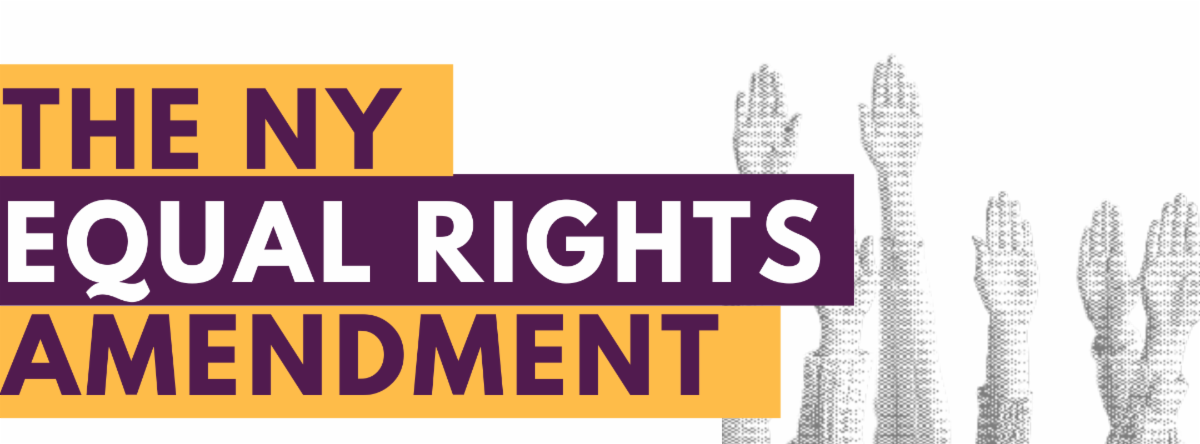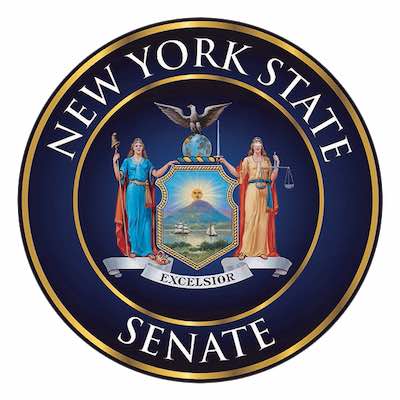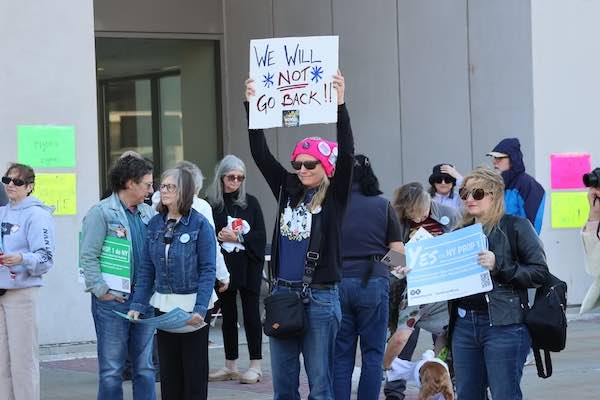Letters to the Editor on Proposition 1
- Monday, 28 October 2024 16:14
- Last Updated: Tuesday, 29 October 2024 15:59
- Published: Monday, 28 October 2024 16:14
- Joanne Wallenstein
- Hits: 2653
 This letter was submitted by Will Brennan of 10 Tunstall Road Scarsdale and does not reflect the views of the publisher of Scarsdale10583.com as published on our pages.
This letter was submitted by Will Brennan of 10 Tunstall Road Scarsdale and does not reflect the views of the publisher of Scarsdale10583.com as published on our pages.
To the Editor,
Constitutional amendments like Prop 1 (called the New York Equal Rights Amendment by its proponents) should be clearly written and clearly understood by the public before they are adopted. Unfortunately, New York’s Democratic Party appears to have decided that obscuring what Prop 1 says and does better suits their electoral interests. Thus, the Scarsdale Democratic Party’s October 9th Letter to the Editor is woefully inaccurate and misleading in its effort to promote Prop 1. This amendment will make significant, undiscussed changes to New York law, and potentially will alter not only abortion laws and parental rights, but also the application of criminal laws to minors, as well as laws regulating driving, marriage, alcohol/marijuana, and firearms.
First, it’s never a good sign when the proponents of a constitutional amendment fail to link to the actual wording – it is here.
Second, the Scarsdale Democratic Party’s primary selling point for Prop 1 is that “Prop 1 does nothing to change existing law—it does not create any new rights or protections” because it merely “enshrines [existing] rights and protections in the New York Constitution.” This is both implausible – if it doesn’t change existing law, what’s the point? – and inaccurate on multiple grounds.
To begin, constitutionalizing rights previously granted by statute does change them: it gives such rights much more authority in case of a conflict between these rights and other state policies. Put simply, constitutionalized rights almost always win out in conflicts between those rights and other government priorities. More importantly, Prop 1 would create new rights – including rights that appear to be unintended by Prop 1’s drafters – that go well beyond existing law.
For example, New York already has statutory age discrimination laws, but these are limited to specific contexts (e.g., employment) and don’t apply to all ages (child labor laws actually require discrimination against minors in many contexts). Prop 1’s constitutionalized ban on all age-based discrimination would sweep far more broadly. On its face, forbidding laws that discriminate based on age would abolish age limits in driving, marriage, purchasing and consuming alcohol and cannabis, and possessing firearms. Our existing laws that give leniency to minors who commit criminal acts constitute de facto discrimination against older offenders – so does Prop 1 mean we will have to punish children more, or adults less? The Scarsdale Democratic Party’s Letter to the Editor also assures voters that Prop 1 would not impact parental rights, but fails to explain how parental rights could be unaffected once laws that discriminate on the basis of age are invalidated. Parental rights are fundamentally age-based -- they depend on the government’s ability to recognize that minors should not have the full set of civil rights exercised by adults. 
Prop 1 proponents may claim that the New York courts could find a way to avoid striking down at least some of those existing laws and rights, but what does it say about Prop 1 if we have to hope that it won’t be implemented as written?
Third, while Prop 1’s abortion-related wording is not at all clear – it doesn’t even mention the word “abortion” – the Scarsdale Democratic Party assures us that Prop 1 would not change New York’s existing 24-week threshold and the rules that govern abortion after 24 weeks. But no explanation is offered as to how this can be true when Prop 1’s plain text does not indicate any limit at all on abortion rights, let alone the specific 24-week threshold in existing law. It thus seems far more likely that Prop 1 will operate to change New York’s abortion laws than to preserve them and, since Prop 1’s wording is so opaque, it’s not clear what the result will be.
Finally, it is especially problematic that Prop 1’s “Form of Submission”, the description that voters will see on their ballots, fails to adequately describe the proposed amendment. Specifically, the ballot will not describe Prop 1’s Section b, which permits the government to make laws and regulations that do discriminate against protected classes as long as the government claims that such discrimination was needed to “prevent or dismantle” some other discrimination. Thus, Section b arguably increases the power of New York law-makers, since the existing New York Constitution does not have a “good intentions” exception for governmental discrimination. People can absolutely disagree in good faith about whether our state government should be granted the power to discriminate against people based on their group identity when law-makers say they mean to help, but surely the Legislature’s request for a new power to discriminate should be clearly described to the voters.
Prop 1’s proponents should be willing to defend Prop 1’s changes – both intentional and accidental – as part of an honest and open debate, but that’s not what’s been happening. Especially given existing laws and the Democratic Party’s control of all branches of our state government, Prop 1 is just a poorly drafted amendment with unknown effects and for which there is no urgent need. (For those interested in what a better alternative would look like, Ohio passed a much clearer constitutional amendment protecting abortion rights last year.)
I encourage you to vote “No” on Prop 1.
Respectfully,
Will Brennan
10 Tunstall Road
Scarsdale, NY 10583
From State Senator Shelley Mayer
State Senator Shelley Mayer encourages constituents to vote yes on Proposition 1 - here is her letter:
Proposed Constitutional Amendment - Proposition 1 - to be Considered by Voters on November Ballot
This year’s November ballot will include a proposed amendment to the New York State Constitution, named the Equal Rights  Amendment, which, if approved, would amend the Constitution to protect against unequal treatment on the basis of ethnicity, national origin, age, disability, creed, religion, or sex including sexual orientation, gender identity or expression, pregnancy, pregnancy outcomes, reproductive healthcare and autonomy. The Equal Rights Amendment would enshrine the right to abortion in the State Constitution. If the amendment is not approved, the state constitution will be left as it currently is.
Amendment, which, if approved, would amend the Constitution to protect against unequal treatment on the basis of ethnicity, national origin, age, disability, creed, religion, or sex including sexual orientation, gender identity or expression, pregnancy, pregnancy outcomes, reproductive healthcare and autonomy. The Equal Rights Amendment would enshrine the right to abortion in the State Constitution. If the amendment is not approved, the state constitution will be left as it currently is.
The Equal Rights Amendment passed both houses of the New York State Legislature in two consecutive sessions, as required by law. The measure now goes before voters for their consideration.
The New York State Constitution currently only provides protections against discrimination on the basis of race, color, creed, and religion. This amendment would extend that protection to include age, gender, disability status, sexual orientation, and pregnancy outcomes, among others.
Prop 1 has been endorsed by the New York City Bar Association and the New York Civil Liberties Union. For more information, please visit your local Board of Elections.
Senator Shelley B. Mayer said, “I encourage all New Yorkers to make their voice heard on this matter by flipping their ballot over and voting on this constitutional amendment.”
 A rally for reproductive rights and Proposition 1 was held in White Plains on Saturday October 25.
A rally for reproductive rights and Proposition 1 was held in White Plains on Saturday October 25.






